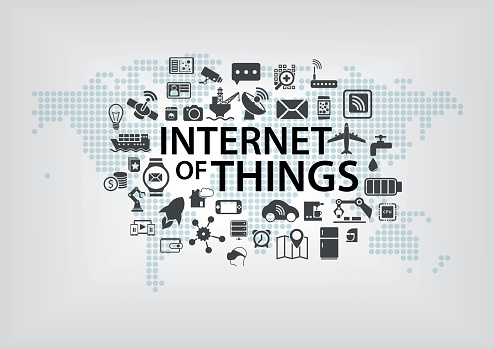By Beth Kotz
The power of the Internet of Things is coming to the world of business in 2017. In the most basic sense, the IoT can be defined as the vast network of small devices all over the globe that are connected to the worldwide web. It encompasses home automation devices, like internet-connected toasters, as well as cutting-edge technologies that can help you and your employees accomplish tasks faster and with greater accuracy.
There are a number of business cases to be made for IoT systems. For example, companies can utilize IoT-based tracking to tie inventory control systems to mobile dashboards in order to notify the buyers that items are going down in stock. These same systems can also be used to quickly run analysis and make decisions going forward. Harnessing the connective capabilities of global Internet networks, the IoT facilitates a myriad of powerful new collaborations between humans and machines.
Control and Efficiency
More than anything, IoT systems offer small businesses a chance to pursue improvements in efficiency in a way that larger competitors may struggle to keep up with. A smaller operation, for example, doesn’t have to struggle with updating and standardizing as many instances of monitors along a production line. If a small enterprise chooses to see this as an opportunity, the IoT permits it a chance to jump ahead of bigger, less nimble competitors.
IoT systems can also allow companies to improve their processes. For example, a production line that includes a number of steps can include control systems that use the IoT to readily pass along notifications to people further down the line to ensure they know a component is ready. This level of connectivity may also permit a business greater remote control over systems’ operations, ultimately reducing service costs.
Software
A lot of different types of software can be integrated it IoT units. In the consumer sector, the most common software system that people think of is Amazon’s Alexa that powers the Echo home assistant. Alexa includes voice-recognition software that identifies specific inquiries and returns a voice response with relevant information for a given inquiry.
A voice-activated system might be a bit much for most small businesses, but the bevy of modern mobile platforms provides plenty of opportunity to use software to make the most of new IoT devices. The operator of a retail establishment can utilize smarter security camera technologies to track everything from thefts to traffic flow through a store. In a more aggressive case, a business could even utilize this type of monitor to spot and greet regular customers upon entry to a location.
Much of the available IoT software dumps data into databases for later use. There is a great case for IoT as a business analytics tool. Likewise, these databases, when combined with mobile dashboards, allow companies to obtain real-time access to information regarding topics ranging from inventory to production line efficiency.
Security
The IoT introduces access points into any system that employs it. This, almost by default, places new demands on any operation’s security infrastructure. Many IOT devices are deployed into the field with few, if any, options for security updates. This means that enterprising hackers can often wardrive or use drones to discover weak points in systems. In extreme cases, hackers could then use a compromised IoT device, such as a smart light bulb or thermostat system, to piggyback onto a network and discover juicier targets.
It’s critical that IoT users provide no more network access for any device than is absolutely necessary. A company should be prepared in the worst case scenario to speedily identify and pull devices that might be compromised once potential vulnerabilities are discovered.
Small businesses in 2017 are uniquely positioned to take advantage of new technology to improve their bottom lines. IoT systems can be used to improve monitoring, reporting, efficiency and control. With the right strategy, your company can reap the benefits of the Internet of Things.
Beth Kotz is a freelance finance and tech writer with a strong interest in the Internet of Things and its potential for change. A graduate of DePaul University, she is currently based out of Chicago, Ill.







